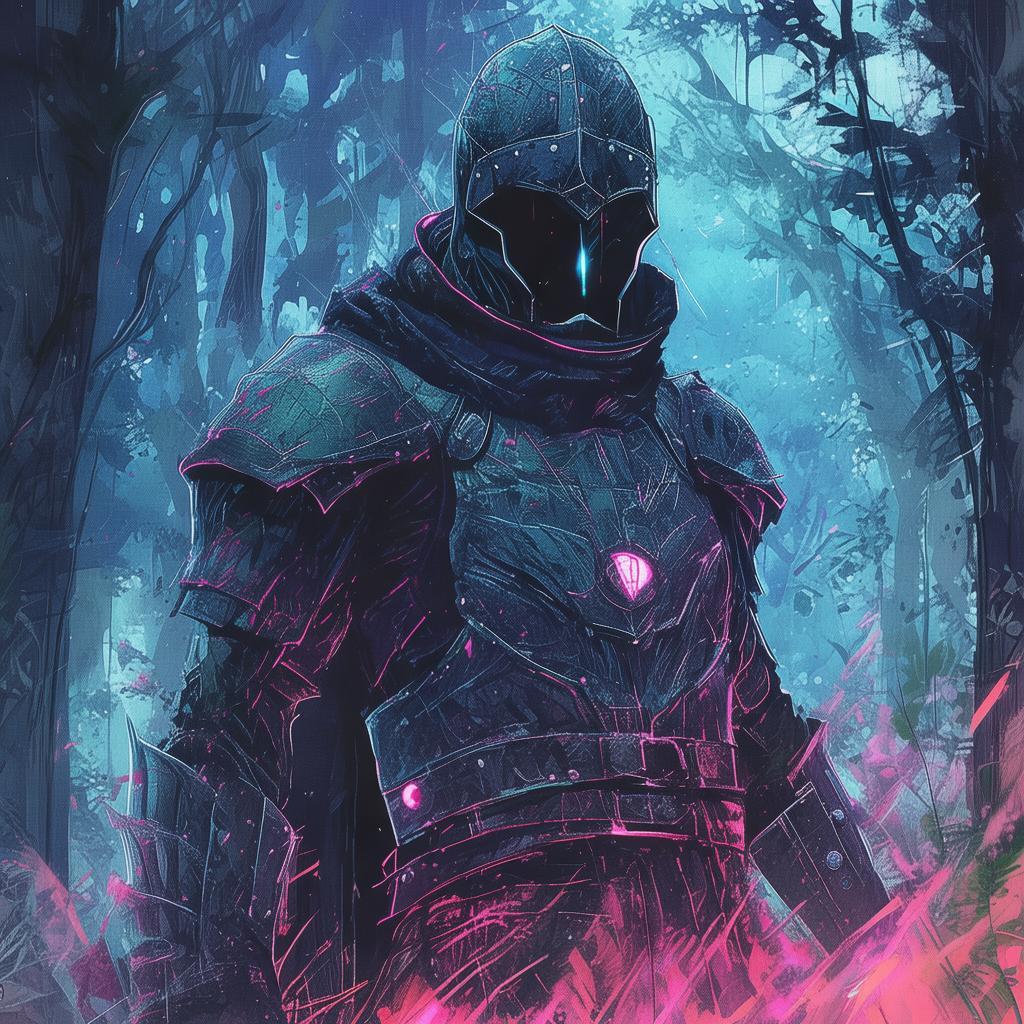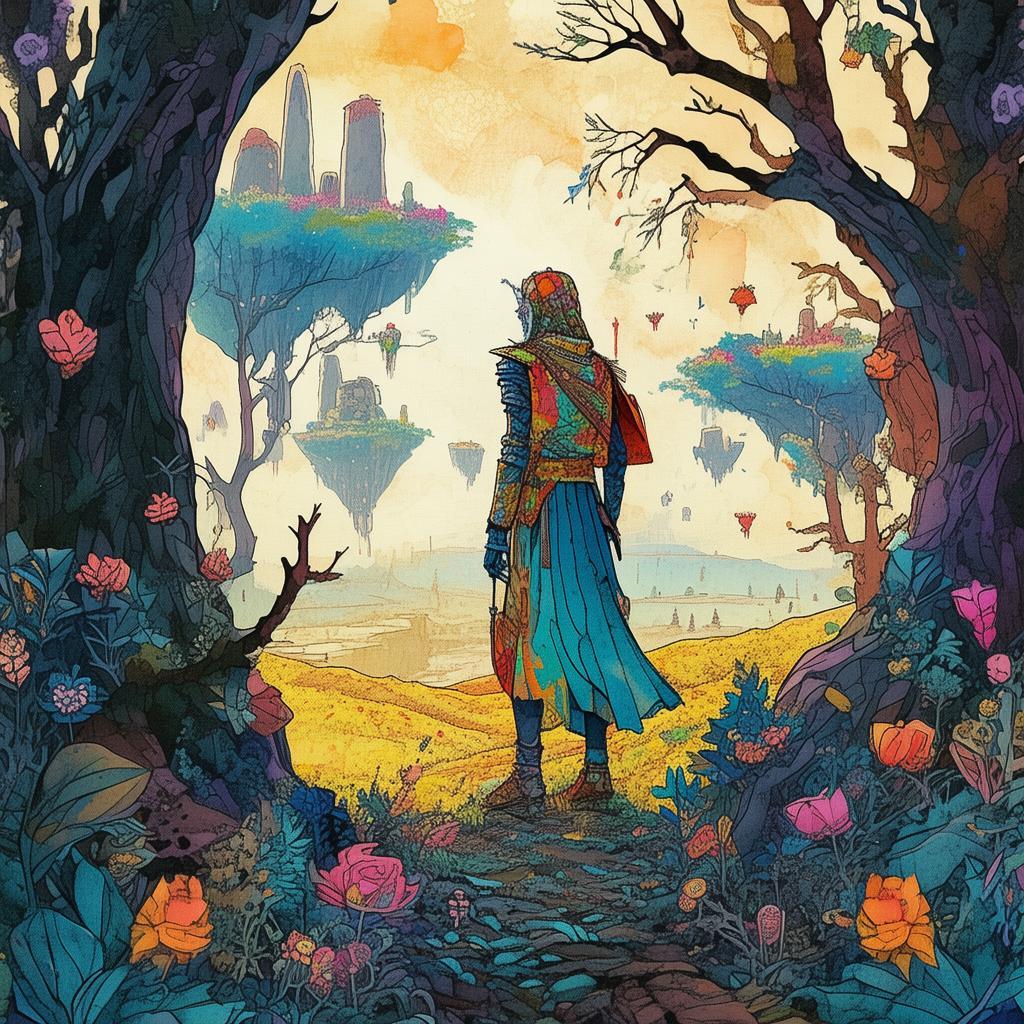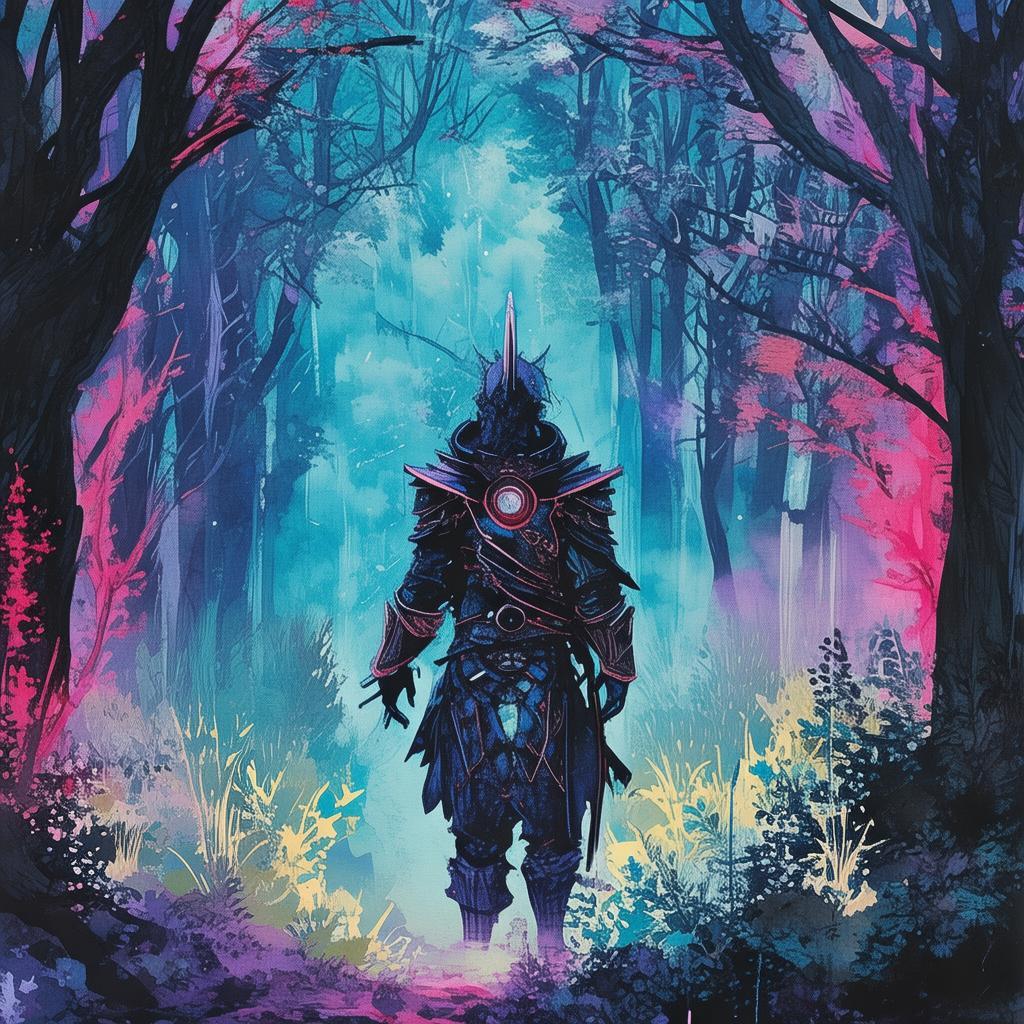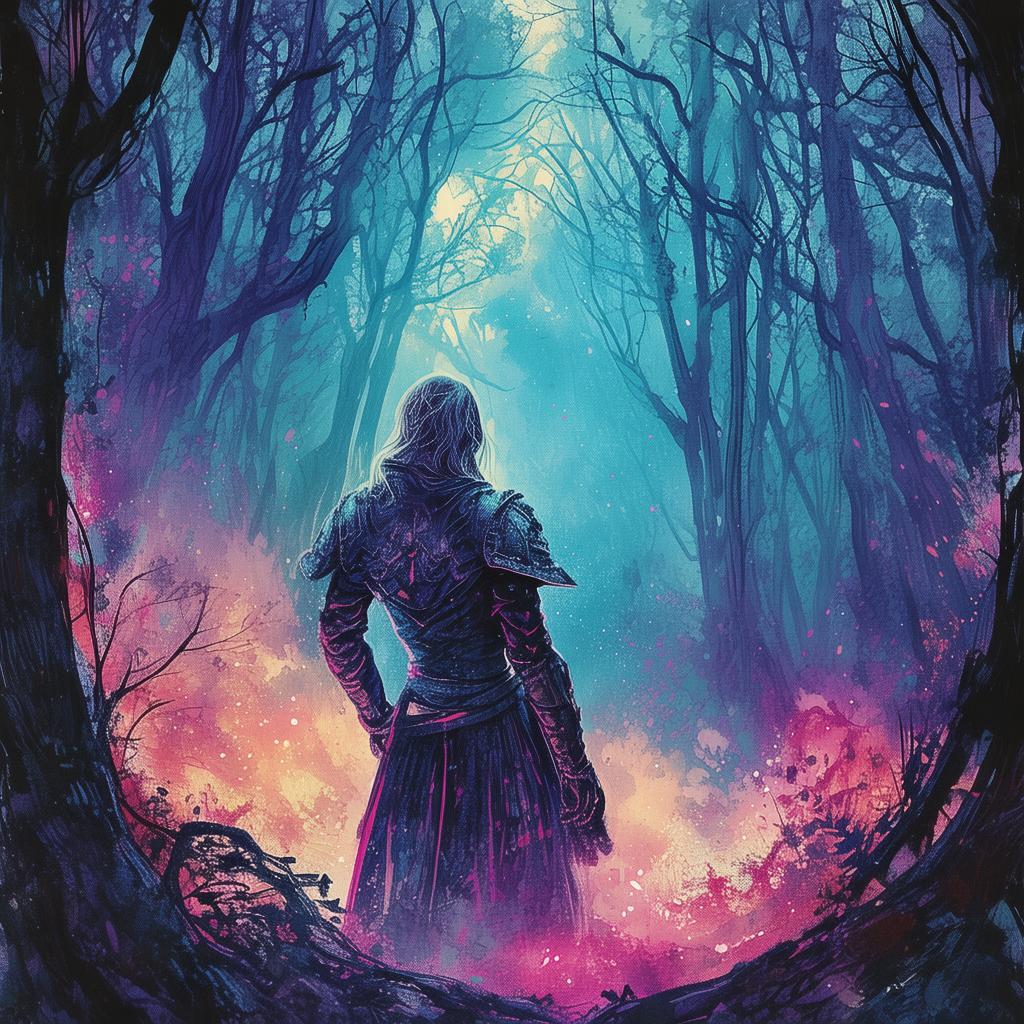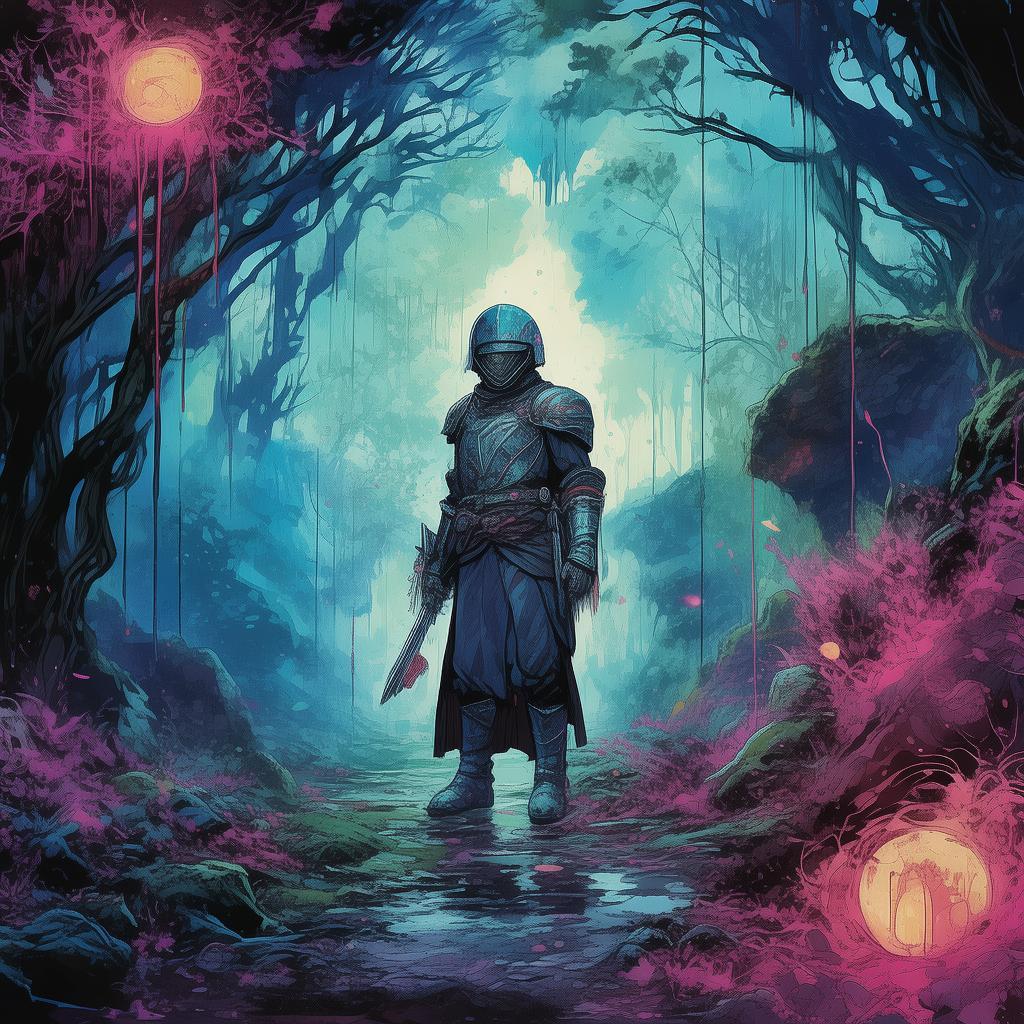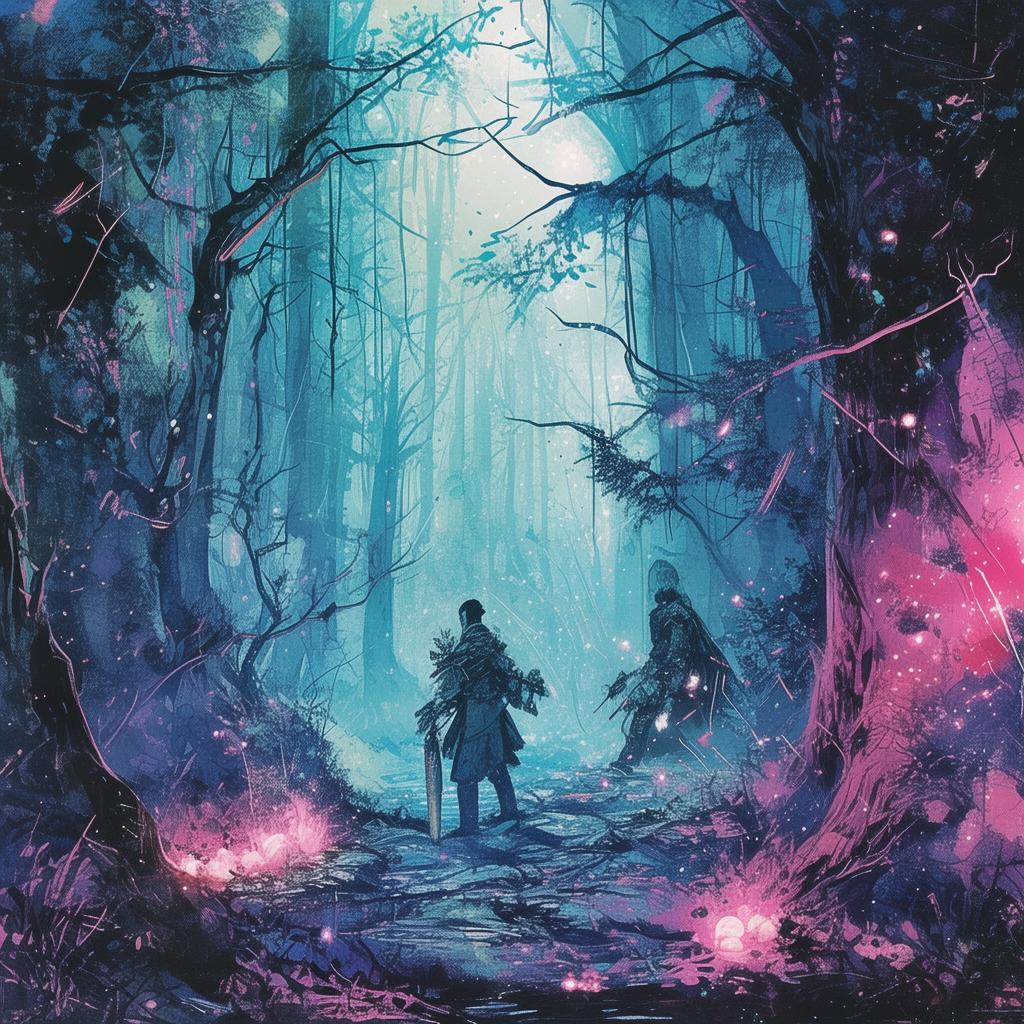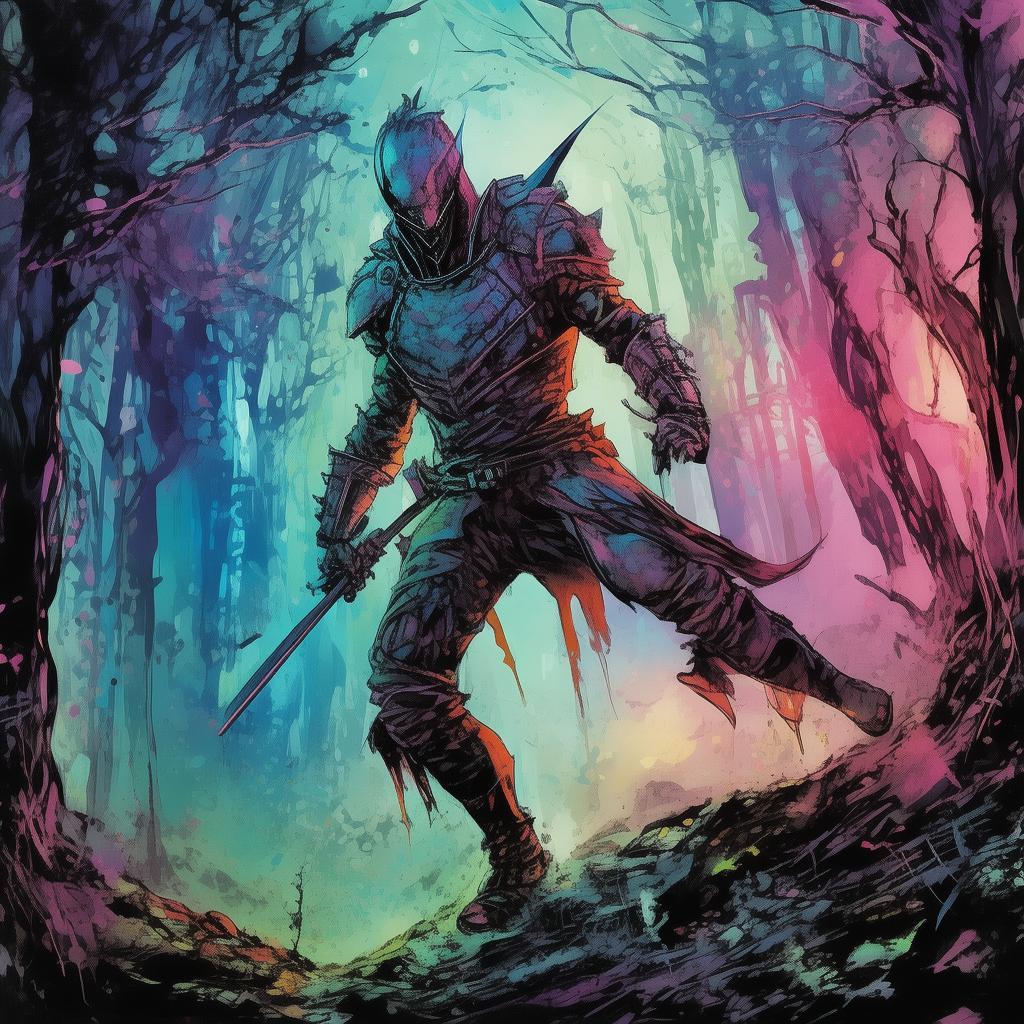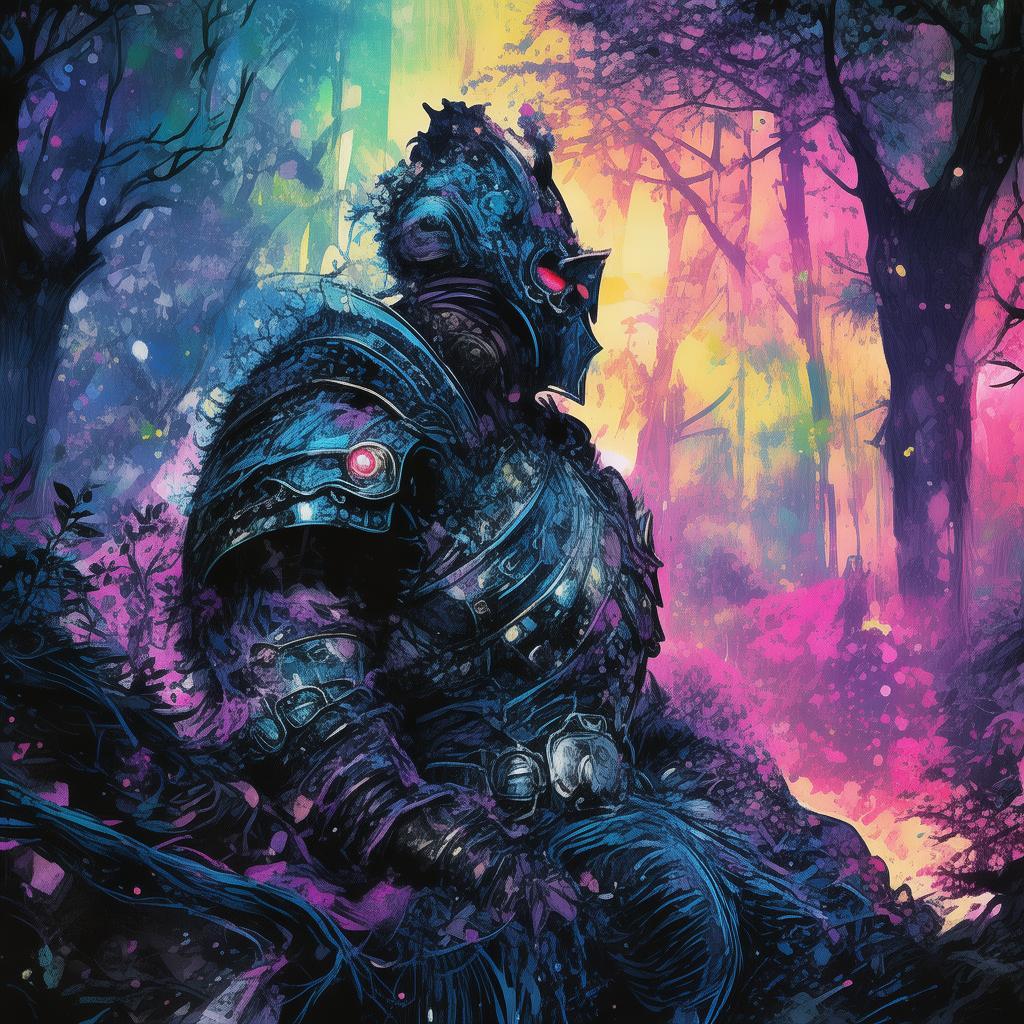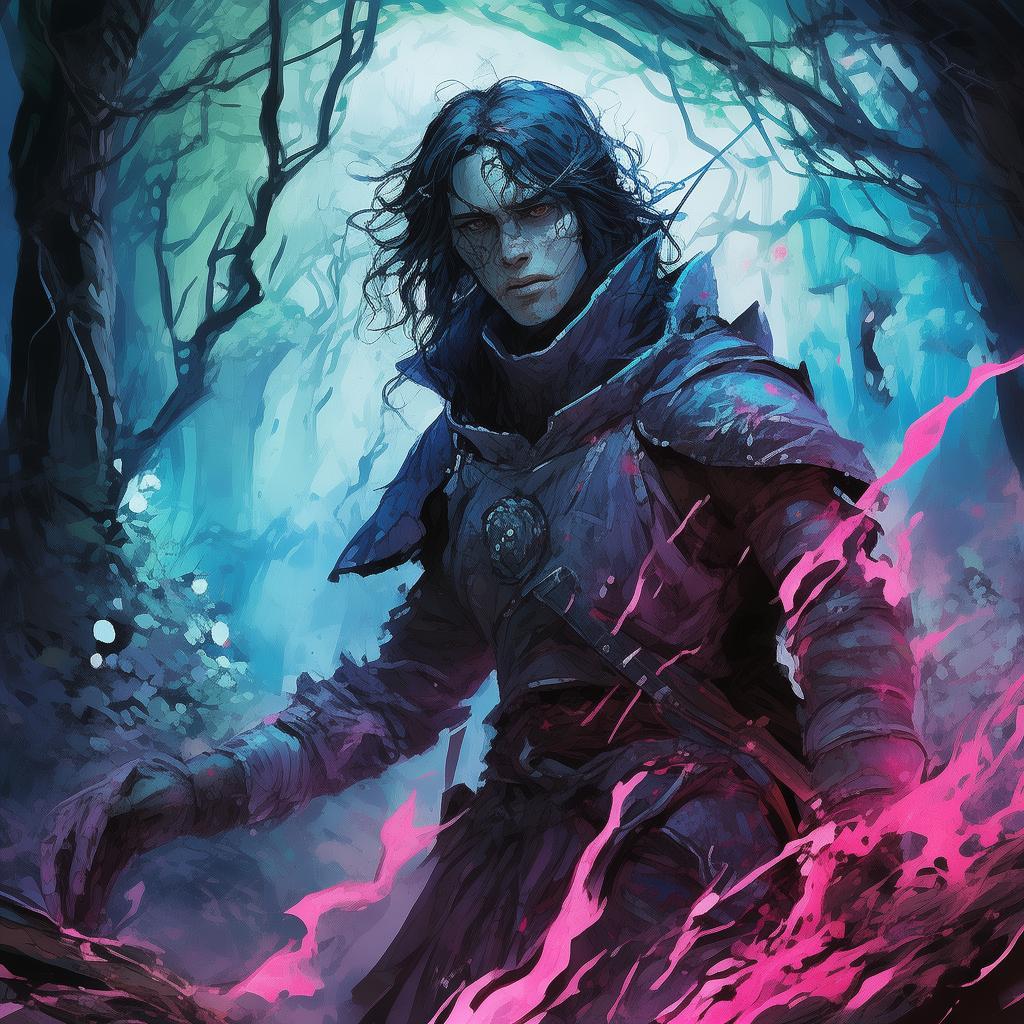The Whispering Tiles: A Tang Dynasty Enigma
In the verdant heart of Chang'an, the bustling capital of the Tang Dynasty, there existed a nobleman known for his wisdom and discernment, Li Chong. He was a man of many secrets, his mind as intricate as the patterns of his favorite game, the ancient Chinese pastime of mahjong. It was during a moonlit evening, as the city was enveloped in a hush, that Li Chong received a mysterious package from an unknown sender.
Inside the package lay an exquisite mahjong set, its tiles intricately carved with symbols of the five suits—circles, sticks, dots, dragons, and winds. The tiles were of a quality that rivaled the finest works of art, yet there was something deeply unsettling about them. They seemed to hum with a faint, almost imperceptible whisper, as if the very essence of the past was trapped within their grooves.
Li Chong's curiosity was piqued. He had been a collector of artifacts, but nothing had ever intrigued him like these tiles. He spent the night studying them, his fingers tracing the edges of the tiles, his mind racing with questions. Whose hand had crafted such exquisite pieces? And why had they been sent to him?
As dawn broke, Li Chong's musings turned to myth. He remembered hearing tales of the Tang Dynasty's emperors, who were said to have used mahjong to divine the future and make important decisions. Could this set have been the one used by the emperors themselves? Or perhaps it was a relic of a forgotten dynasty, its secrets buried in the annals of time?
Determined to uncover the truth, Li Chong embarked on a journey that would take him from the opulent courts of Chang'an to the remote villages of the Silk Road. His first stop was the ancient library of the Imperial Academy, where scholars had gathered for centuries to study the arts and sciences.
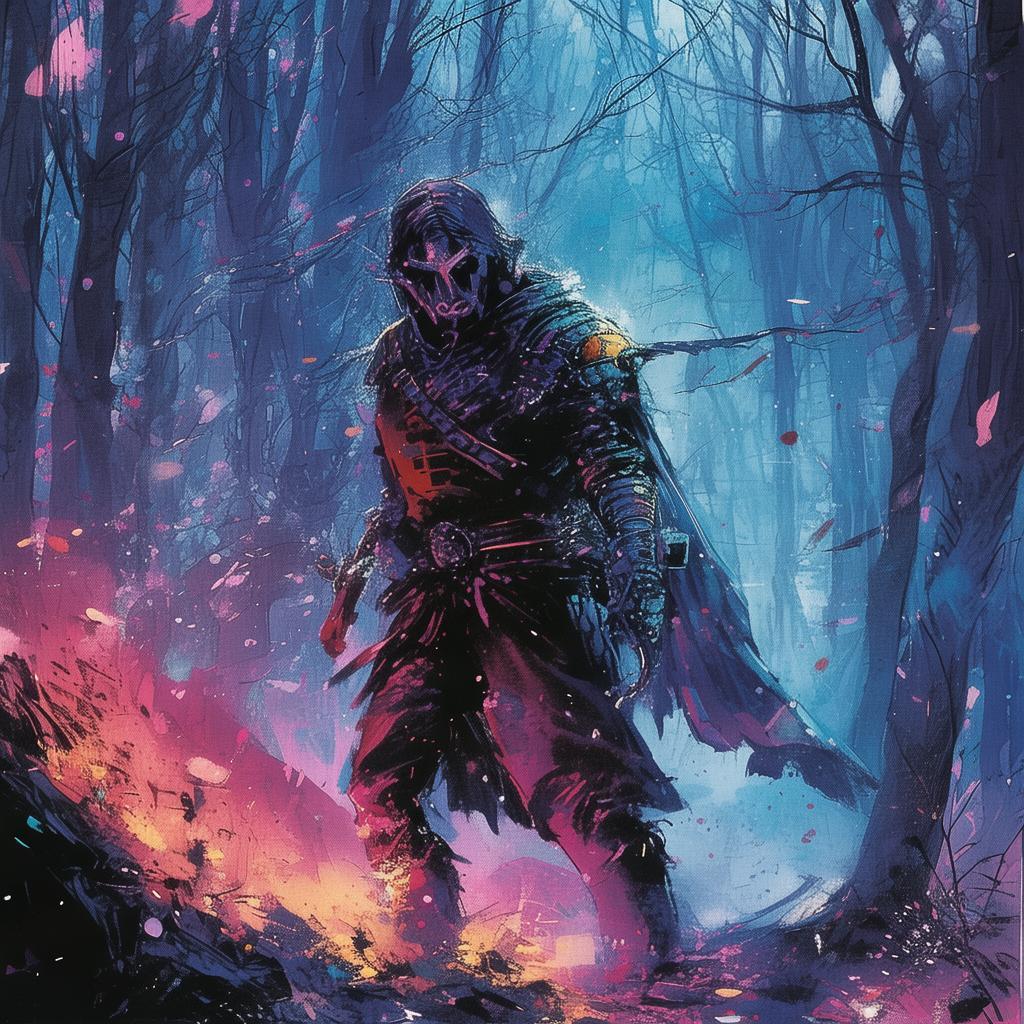
There, amidst towering shelves of scrolls and tomes, Li Chong discovered a cryptic passage that hinted at the origins of the mahjong set. It spoke of a conundrum that had puzzled emperors and sages for generations, a riddle that could only be solved by those with a keen mind and a brave heart.
The passage described a game of mahjong played between two legendary figures: an emperor and a wise sage. The game was not one of strategy or luck, but of moral dilemmas and profound understanding. The tiles were imbued with the essence of their choices, and the outcome of the game would determine the fate of the empire.
Li Chong knew that the game's true meaning lay in the hands of those who played it, not the tiles themselves. He set out to find the wise sage, a hermit who had retreated from the world and was said to possess the wisdom of a thousand years.
The journey was arduous, with Li Chong facing numerous challenges along the way. He encountered bandits, natural disasters, and even the treacherous politics of the court. Each obstacle tested his resolve and his understanding of the game's riddles.
Finally, Li Chong arrived at the hermit's secluded abode, a small cabin nestled in the embrace of a towering pine forest. The hermit, an old man with a gentle smile and piercing eyes, welcomed him with open arms.
Li Chong revealed the story of the tiles and the ancient conundrum to the hermit. The hermit listened intently, his eyes reflecting the wisdom of the ages. Then, he took out a set of his own mahjong tiles and began to play.
The game was a dance of shadows and light, the hermit's movements fluid and precise. Li Chong followed, his mind racing with the implications of each move. The game progressed, and the whispers of the tiles grew louder, each tile a voice from the past, a story waiting to be told.
As the game reached its climax, the hermit revealed a truth that shocked Li Chong. The tiles were not just a tool for divination, but a mirror to the soul. The choices made in the game were a reflection of the decisions the players had made in life, and the outcome of the game would determine their destiny.
In the end, Li Chong realized that the true power of the mahjong set lay not in its ability to predict the future, but in its capacity to reveal the hidden truths of the past. He learned that the choices he made in the game were a testament to his character, and that the destiny of the empire was not predetermined but shaped by the actions of its people.
With newfound clarity, Li Chong returned to Chang'an, his heart lighter but his resolve stronger. He used the lessons learned from the game to guide the empire through a time of crisis, his wisdom and compassion earning him the respect of his people.
And so, the legend of the whispering tiles of the Tang Dynasty was born, a tale of a game that transcended time and space, a reminder that the choices we make today are the threads that weave the tapestry of our future.
✨ Original Statement ✨
All articles published on this website (including but not limited to text, images, videos, and other content) are original or authorized for reposting and are protected by relevant laws. Without the explicit written permission of this website, no individual or organization may copy, modify, repost, or use the content for commercial purposes.
If you need to quote or cooperate, please contact this site for authorization. We reserve the right to pursue legal responsibility for any unauthorized use.
Hereby declared.
